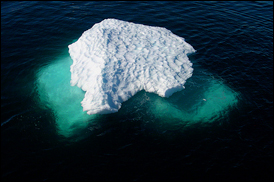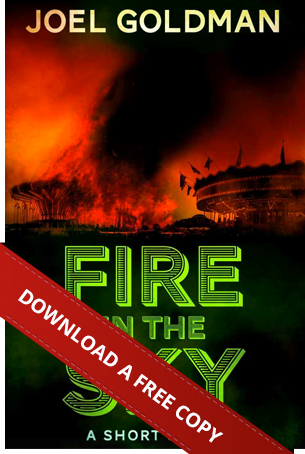 Are there any new stories? I really enjoyed reading Joel’s last post about the writer’s challenge, the fine art of giving age-old tales a new slant.
Are there any new stories? I really enjoyed reading Joel’s last post about the writer’s challenge, the fine art of giving age-old tales a new slant.
I imagine all stories cover the same subject matter as far as the human condition goes. A potent mix of love, hate, fear, jealousy, courage, weakness, greed, violence, redemption and so on form the basis of almost every story on the planet. Stone Age tales told around a roaring fire, on a bleak plain full of large-toothed hungry animals, probably covered the same evolution-deep subject matter.
Luckily new threats arise to keep literature fresh. Take climate change. This week’s New Scientist magazine reports on the Antarctic ice, which is melting much faster than anyone had previously thought. And there are significant question marks about whether it’s wise to rebuild on low-lying land where homes and businesses were trashed by Hurricane Sandy, with so-called 100 year storms due to give the region a serious pasting much more often than every 100 years. How’s that for ground breaking apocalyptic novel fodder?
What about a world without coffee? Joel certainly wouldn’t be happy if his Starbucks ‘office’ ran dry, and he’d be joined by literally billions of fellow coffee lovers across the planet. Last year coffee yields were at a 35 year low and at the current rate of global warming, some experts reckon the notoriously fussy coffee plant will have died a death altogether by 2080. Are coffee riots on the cards for the not-so-far future? That’s what I call a cool subject for a novel, and it’s unique… unless you know better?
As Curiosity ambles across the red deserts of Mars in search of sediments that may have once supported or contained life, science fiction writers’ imaginations must be buzzing. And the news that stem cells from the bone marrow of five-day-dead corpses might hold the secret to a variety of life saving treatments, while curious and creepy, opens up whole new worlds of fun and games for storytellers.
Technological innovation must deliver one of the richest sources of new stories, even though the tales we weave follow the same human themes. You’ll soon be able to ‘pinch’ a texture from a touch screen image and paste it onto a photo of your living room, helping you choose the best wallpaper. You’ll be able to can rig up a chair – any old chair – with games controllers and turn it into a gaming ‘flight simulator’ for a tiny fraction of the cost. And it turns out that, at a quantum level, reality is much weirder than we thought: no waves, no particles, but something even odder. Inspired? Then go write!
I suppose the same goes for music and art. There are only so many combinations of notes and so many images of ‘things’ to represent. But new technologies bring fresh pastures to music by synthesising instruments to create entirely new sounds that can’t be reproduced without electronic support. And the threats and developments I’ve mentioned all deliver exciting potential to artists and creative types.
While the human condition doesn’t change, our environment does. And along with individuals’ passions, talents, drivers and obsessions, I reckon that’s what keeps the creative process infinitely fresh.
What do you think? If you were a writer, how would you approach a 21st century crime novel? And would your idea really be completely new, or an ancient human story given a contemporary slant?
Image source: by bChank











